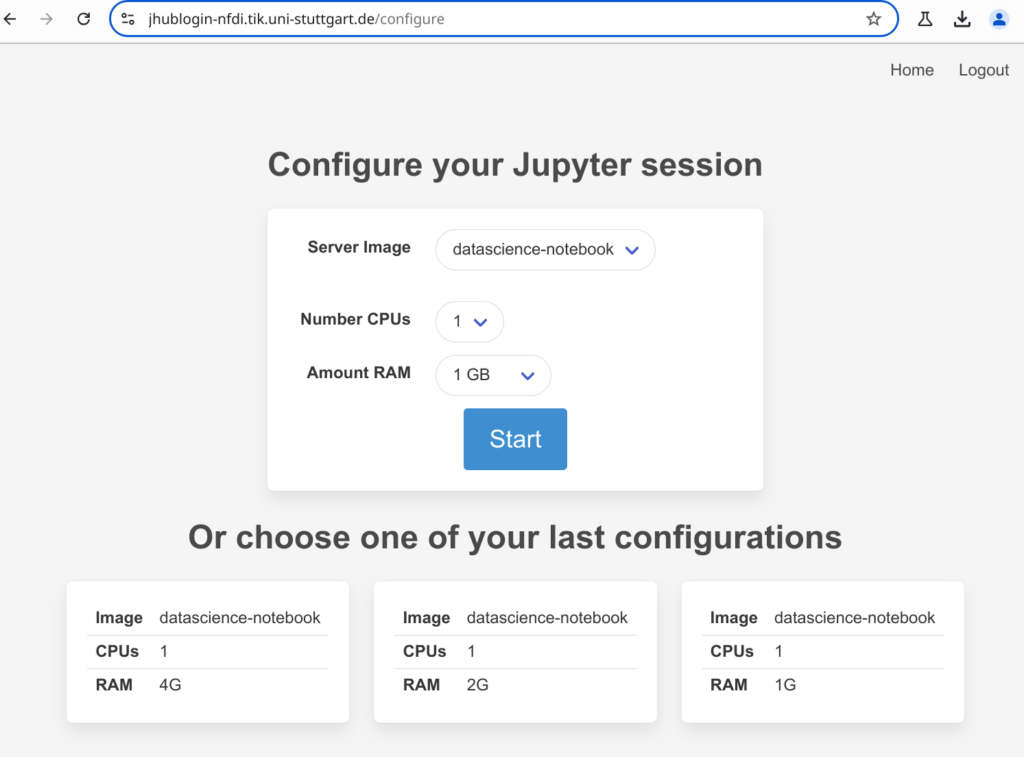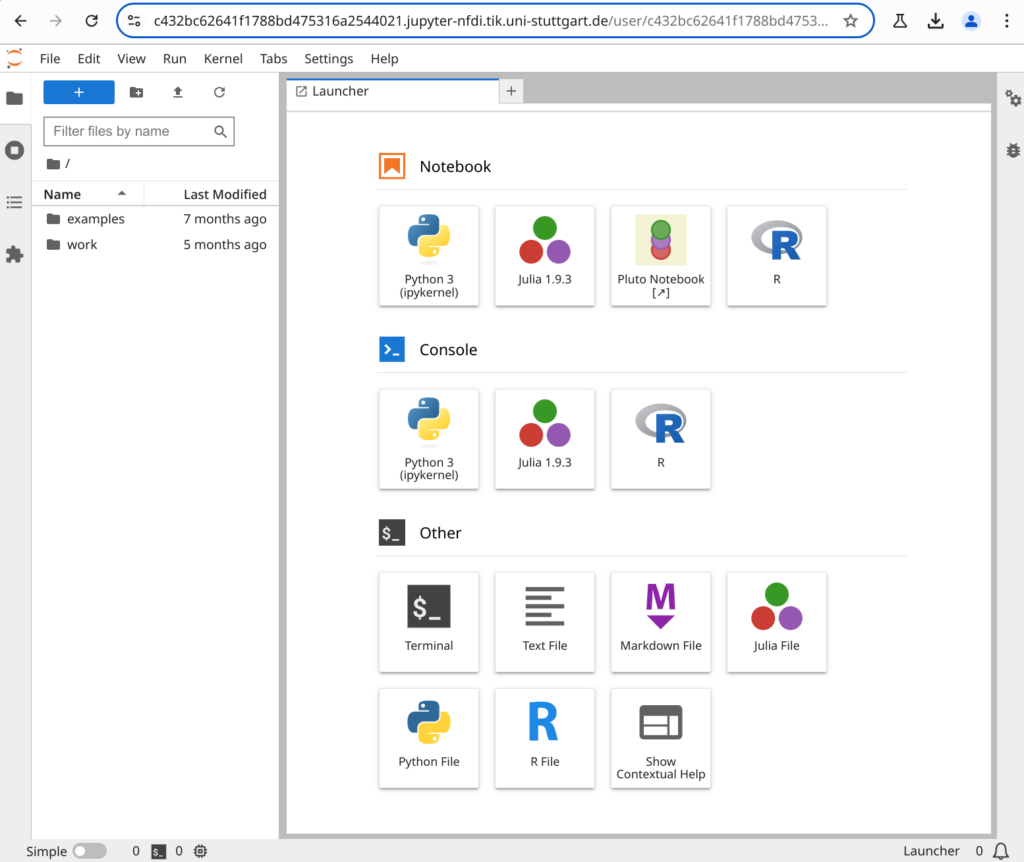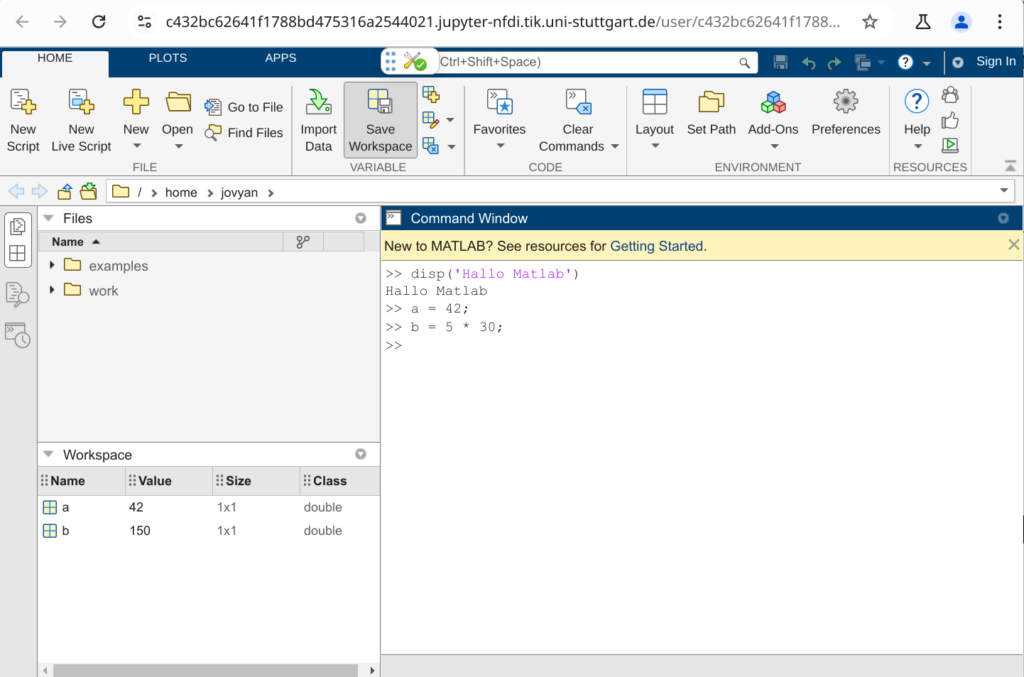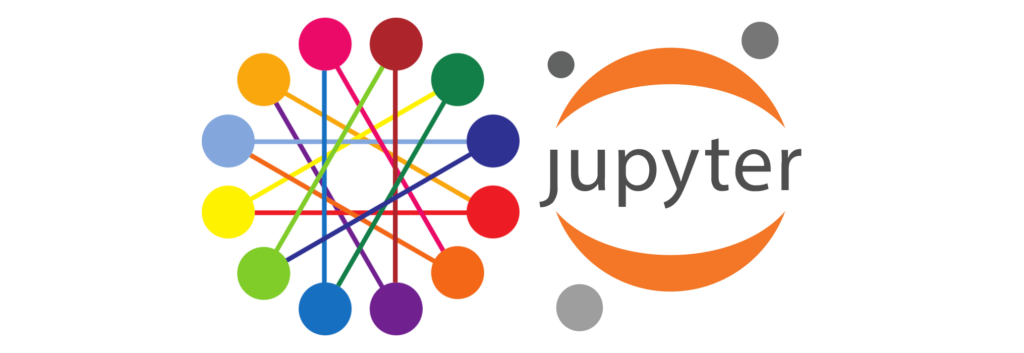Detailed description of the service
Service’s Capabilities:
The NFDI4Ing Jupyter Service lets you spin up a computational environment in your browser, ready to go for coding, data analyzing, and teaching research software engineering.
At the moment, two computational environments can be selected, one supporting Python, Julia, and R, including typical libraries needed in data science (detailed information here). The other environment allows the academic usage of MATLAB and supports polyglot programming, i.e., several programming languages in a single Jupyter notebook.
Users are free to install further libraries or customize Jupyter extensions in their running session. Available resources range from 1 to 4 CPU cores and up to 4 GB of memory for a single user. Additionally, 10 GB of temporarily disk space is available during a session, and 2 GB permanent disk space is available for each user.

Added Value for the User:
The service provides easy accessible, low entry barrier environments to fulfill common data analysis tasks. There is no need to install software or to have the required computational resources on a local system , e.g., to re-use an existing notebook. Therefore, the service facilitates the exploration and identification of suitable existing code reducing the time needed to start working on the own research questions.
Service’s Suitability:
The service is suitable for students and researchers, code developers and code providers. It especially benefits those who want to interactively re-use already existing computational notebooks.
Typical Use Cases:
Interactive analysis of a representative subset of experimental or simulation data with the aim to write a documented postprocessing pipeline that can be applied to the entire dataset.
Experimental prototyping, e.g., to determine good starting conditions and/ or parameters for coming up experiments / simulations.
Re-using and altering existing Jupyter notebooks to build upon work of others.
Interactive learning of new technology, e.g., through documenting lessions learned via formulas, text and code.
Creating learning material for developed research software.
Working together on a single document with mixed teams and programming languages.


Strengths of the Service:
Ready-to-use environment for typical data analysis tasks with just a click in the browser
Facilitating the enrichment of code by text descriptions, images and more
Low barrier in re-using already existing computational notebooks or compatible research software
Weaknesses of the Service:
Limited computational resources and disk space for larger analysis; no GPUs
Lacking advanced IDE features for notebooks like tools for refactoring, advanced code navigation or debugging; however, it’s possible to use an IDE via the NFDI4Ing Jupyter Service, e.g., the Matlab IDE
Compatibility with the Jupyter software stack as a precondition to provide research software.
Terms of use & restrictions
Contact
Anett Seeland, fokus@izus.uni-stuttgart.de
General support, jupyter-support@izus.uni-stuttgart.de
Miscellaneous
https://docs.jupyter.org/en/latest/ – official user docu
https://jupyterlab.readthedocs.io/en/latest/ – official user docu
https://blog.jupyter.org/ – news and interesting use cases
